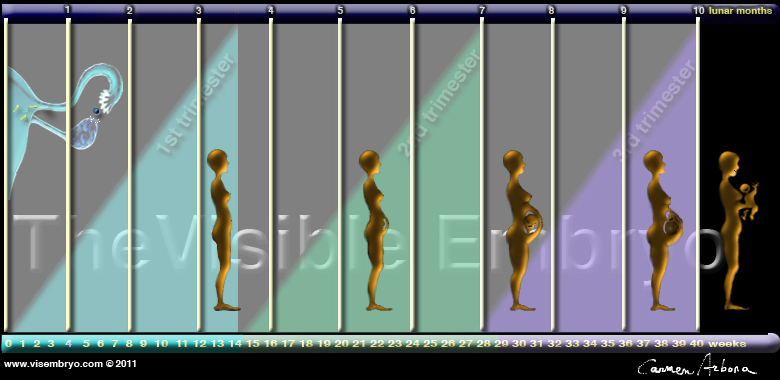|
|
Developmental Biology - Parent-Child Behavior
Parents' Lies Hurt Their Children
Children told lies by parents subsequently lie more as adults and face adjustment difficulties...
"If you don't behave, I'll call the police," is a lie some parents might use to get their young children to behave. Parents' lies might elicit compliance in the short term, but a new psychology study led by Nanyang Technological University, Singapore (NTU Singapore) suggests this behavior is associated with detrimental effects when that child becomes an adult.
The research team asked 379 young adults from Singapor, whether their parents lied to them when they were children — and how much they lie to their parents now. Then we asked questions related to how well they are adjusting to adulthood challenges.
Adults who reported being lied to more as children, were more likely to report lying to their parents as adults. They also said they faced greater difficulty in meeting psychological and social challenges. Their adjustment difficulties included disruptiveness, conduct problems, experience of guilt and shame, as well as selfish and manipulative character traits.
The research, done in collaboration with Canada's University of Toronto, the United States' University of California, San Diego, and China's Zhejiang Normal University, are published in The Journal of Experimental Child Psychology.
"Parenting by lying can seem to save time especially when the real reasons behind why parents want children to do something are complicated. When parents tell children that 'honesty is the best policy', but display dishonesty by lying, such behavior can send conflicting messages to their children. Parents' dishonesty may eventually erode trust and promote dishonesty in children."
"Our research suggests that parenting by lying is a practice that has negative consequences for children when they grow up. Parents should be aware of these potential downstream implications and consider alternatives to lying, such as acknowledging children's feelings, giving information so children know what to expect, offering choices and problem-solving together, to elicit good behavior from children."
Peipei Setoh PhD, Assistant Professor, NTU Singapore School of Social Sciences, and lead author.
How the study was done: 379 Singaporean young adults completed four online questionnaires.
The first questionnaire asked participants to recall if their parents told them lies that related to eating; leaving and/or staying; children's misbehavior; and spending money. Some examples of such lies are "If you don't come with me now, I will leave you here by yourself" and "I did not bring money with me today, we can come back another day."
The second questionnaire asked participants to indicate how frequently, as adults, they lie to their parents. It asked about lies in relation to their activities and actions: (1) prosocial lies (or lies intended to benefit others); or (2) exaggerations about events. Lastly, (3) participants filled in two questionnaires that measured their own self-reported psychosocial maladjustment and tendency to behave selfishly and impulsively.
Analysis found 'parenting by lying' can place children at greater risk as adults for developing problems with aggression, rule-breaking and intrusive behaviors.
Some limitations of the study include relying on what young adults report about their retrospective experience of their parents' lying. "Future research can explore using multiple informants, such as parents, to report on the same variables," suggests Professor Setoh.
The authors also point out that as the study uses correlation of data in its design - which aims to find out the naturally occurring relationships between variable elements - they are unable to draw causal inferences.
Another area yet to be investigated would be the nature of the lies or goals of the parent. Professor Setoh explains: "It is possible that a lie to assert the parents' power, such as saying 'If you don't behave, we will throw you into the ocean to feed the fish', may be more related to a child's difficulties adjusting as an adult — when compared to lies that target children's compliance, e.g. 'there is no more candy in the house.'
"Authority assertion over children is a form of psychological intrusiveness, may undermine children's sense of autonomy and convey rejection. Ultimately, it undermines children's emotional well-being.
"Future research should examine the nature of the lies and goals of the parents so that researchers can suggest what kind of lies to avoid, and what kind of truth-telling parents should engage in."
Abstract
Parenting by lying refers to the parenting practice of deception to try to control children’s behavioral and affective states. Although the practice is widely observed across cultures, few studies have examined its associations with psychological outcomes in adulthood. The current research fills this gap by sampling 379 young Singaporean adults who reported on their childhood exposure to parenting by lying, their current deceptive behaviors toward parents, and their psychosocial adjustment. Results revealed that the adults who remembered being exposed to higher levels of parenting by lying in childhood showed higher levels of deception toward their parents and higher levels of psychosocial maladjustment. Our findings suggest that parenting by lying may have negative implications for children’s psychosocial functioning later in life.
Authors
Peipei Setoh, Siqi Zhao, Rachel Santo, Gail D. Heyman and Kang Lee.
Acknowledgments
The research was funded by Singapore Ministry of Education's Social Science Research Thematic Grant and Nanyang Technological University's Start-up Grant.
Return to top of page.
| |
|
Oct 10 2019 Fetal Timeline Maternal Timeline News
 Parenting by lying could place children at a greater risk of developing problems society frowns upon: aggression, rule-breaking and intrusive behavior. CREDIT Kyoto University/Kaori Watanabe
|



